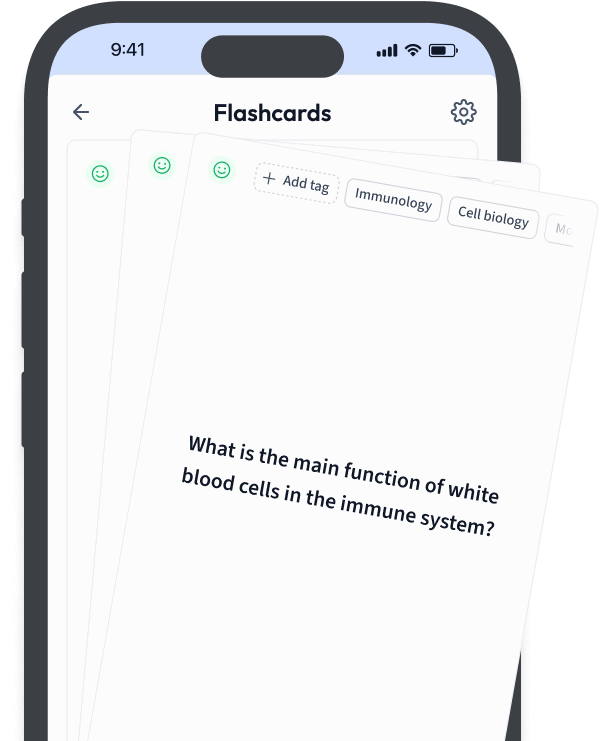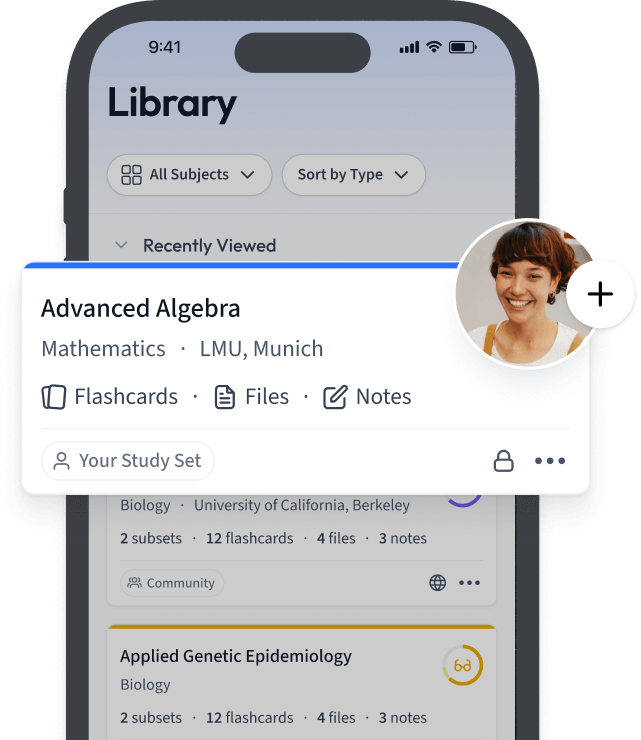Danke für Ihr Interesse an den Lernpräferenzen!
Danke für dein Interesse an verschiedenen Lernmethoden! Welche Methode bevorzugst du? (z. B. „Audio“, „Video“, „Text“, „Keine Präferenz“) (optional)
Feedback sendenKuchenarten Definition
Kuchenarten or cake types are a delightful aspect of the culinary arts that students in the field of hospitality and tourism should be familiar with. Understanding different types of cakes is not only essential for those venturing into pastry arts but also for those offering comprehensive services in the gastronomy and tourism sectors.Knowledge of cake types helps cater to diverse consumer preferences and enhances the ability to design attractive menus and events, appealing to a wide array of tastes and dietary needs.
Variety of Cakes
- Cheesecake: Originates from Greece, typically features a crust made of crushed cookies and a creamy filling made from cream cheese, mascarpone, or ricotta.
- Sponge Cake: Known for its light and fluffy texture, this cake is made with beaten eggs and flour, without the use of butter.
- Pound Cake: Traditional British cake, its name derives from the use of a pound each of flour, butter, eggs, and sugar.
- Black Forest Cake: A German specialty made with layers of chocolate sponge cake, whipped cream, cherries, and coated with chocolate shavings.
- Bundt Cake: Named after the pan it is baked in, usually possesses a ring shape and comes in various flavors like lemon or chocolate.
For instance, when managing a hotel bakery, knowing that a Cheesecake might be more appealing to guests from Europe, whereas an Angel Food Cake might be favored by American guests, can significantly enhance guest satisfaction.
Deep Dive: Cakes, though often associated solely with dessert, hold significant cultural importance. For example, Battenberg Cake is a symbol of Anglo-German relations, first made for Princess Victoria’s marriage to Prince Louis of Battenberg. Knowing these cultural connections can enrich hospitality offerings by tying dishes to historical and cultural narratives.
Hint: Including local or traditional cakes in your menu can boost cultural appreciation and provide a unique selling point for international guests.
Kuchenarten Beschreibung
Kuchenarten offers a fascinating insight into the world of cakes, revealing the wide variety of styles and flavors found across different cultures. This knowledge is essential for those in the hospitality and tourism sectors, as it allows for an expanded repertoire that can cater to diverse tastes and cultural preferences.Exploring cake types involves understanding their unique characteristics, ingredients, and traditional significance.
Diverse Cake Styles
| Cheesecake | Characterized by its rich and creamy texture, often including a base of crushed cookies. |
| Sponge Cake | Known for its light, airy texture, made primarily from beaten eggs, sugar, and flour. |
| Pound Cake | Contains equal parts of flour, butter, eggs, and sugar, and is dense in texture. |
| Black Forest Cake | A notable German cake layered with chocolate sponge, whipped cream, and cherries. |
| Bundt Cake | Baked in a distinctive ring-shaped pan, often featuring a rich, buttery flavor. |
Kuchenarten Herstellung
Understanding the manufacturing process of different cake types is crucial for aspiring bakers and professionals in the hospitality industry. Mastering these techniques can help you produce cakes that appeal to various cultural and personal preferences.From selecting ingredients to mastering baking techniques, each step in cake preparation offers distinct challenges and rewards.
Ingredients and Preparation Techniques
- Flour Selection: Cakes can vary significantly in texture and taste depending on whether you use all-purpose flour, cake flour, or self-rising flour.
- Egg Incorporation: Beaten eggs can greatly influence the cake's leavening and structure, as seen in sponge and chiffon cakes.
- Fat Use: The type of fat (butter, oil, or margarine) affects moisture and flavor. Typically, butter adds richness, while oil creates lighter textures.
- Sweeteners: Beyond standard sugar, options like honey or molasses might be used for unique flavors.
A Sponge Cake is a light cake made by whisking eggs with sugar until frothy, then gently folding in flour, achieving its rise without the use of baking powder.
Consider a Black Forest Cake creation. Begin with a base of chocolate sponge, layer with cherries and whipped cream, and finish with a topping of chocolate shavings.
The art of cake making goes beyond basic recipes. Historical significance plays a role in technique innovations - for example, during war times, bakers adapted recipes due to ingredient shortages, leading to innovation in cake substitutes like vinegar in egg-free cakes, laying the groundwork for modern vegan baking.
Using room temperature ingredients is often recommended for better emulsification and smoother batter consistency in cake making.
Kuchenarten Techniken in der Gastronomie
The intricacies involved in baking Kuchenarten are a crucial part of culinary education in gastronomy. Understanding these techniques not only enhances your skills as a baker but also enriches your ability to cater to a wide array of culinary expectations within the hospitality industry's dynamic environment.Cake preparation involves meticulous techniques, from ingredient selection to baking methods, which reflect in the final taste and presentation.
Advanced Baking Techniques
Advanced baking techniques elevate the quality of cake offerings in professional settings. Techniques like tempering chocolate, achieving the right batter consistency, and mastering baking times are essential. Automation in baking, such as using convection ovens, ensures consistency across multiple batches.Bakers utilize a combination of precise measurements and creativity to ensure each cake meets high culinary standards.
For instance, in a high-end hotel patisserie, utilizing techniques such as mirror glazing can transform a simple sponge cake into a visually stunning dessert, highlighting the importance of presentation in gastronomy.
Don't forget to preheat your oven for at least 20 minutes before baking to ensure an even temperature and optimal baking environment.
Deep Dive: The science of baking is a refined dance between chemical reactions and thermal transfer. The Maillard reaction, responsible for browning, enhances flavor and aroma, crucial when aiming for the perfect cake crust. Meanwhile, understanding gluten development helps control texture, essential in products from firm pound cakes to airy angel food cakes.
Kuchenarten - Key takeaways
- Kuchenarten Definition: Refers to the different types of cakes, important for students in hospitality and tourism for menu planning and consumer satisfaction.
- Kuchenarten Beschreibung: Involves understanding the diversity of cakes across cultures, their unique characteristics, and cultural significance.
- Kuchenarten Herstellung: Refers to the manufacturing process, including ingredient choices and baking techniques, which are essential for producing culturally diverse cakes.
- Cheesecake: A type of cake originating from Greece, known for its creamy filling and cookie crust.
- Sponge Cake: Recognized for its light texture, made with beaten eggs and flour, without butter.
- Kuchenarten Techniken: Advanced baking techniques in gastronomy encompass ingredient selection, baking methods, and presentation, enhancing the quality of cake offerings.
Lerne schneller mit den 12 Karteikarten zu Kuchenarten
Melde dich kostenlos an, um Zugriff auf all unsere Karteikarten zu erhalten.

Häufig gestellte Fragen zum Thema Kuchenarten


Über StudySmarter
StudySmarter ist ein weltweit anerkanntes Bildungstechnologie-Unternehmen, das eine ganzheitliche Lernplattform für Schüler und Studenten aller Altersstufen und Bildungsniveaus bietet. Unsere Plattform unterstützt das Lernen in einer breiten Palette von Fächern, einschließlich MINT, Sozialwissenschaften und Sprachen, und hilft den Schülern auch, weltweit verschiedene Tests und Prüfungen wie GCSE, A Level, SAT, ACT, Abitur und mehr erfolgreich zu meistern. Wir bieten eine umfangreiche Bibliothek von Lernmaterialien, einschließlich interaktiver Karteikarten, umfassender Lehrbuchlösungen und detaillierter Erklärungen. Die fortschrittliche Technologie und Werkzeuge, die wir zur Verfügung stellen, helfen Schülern, ihre eigenen Lernmaterialien zu erstellen. Die Inhalte von StudySmarter sind nicht nur von Experten geprüft, sondern werden auch regelmäßig aktualisiert, um Genauigkeit und Relevanz zu gewährleisten.
Erfahre mehr





